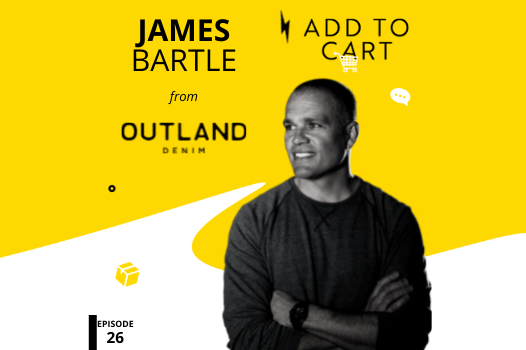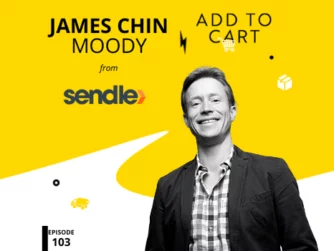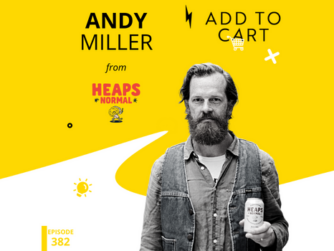In this episode of Add To Cart, we are joined by James Bartle, Founding CEO of Outland Denim. The former motocross rider was inspired to build a company that drives social change and saw denim jeans as the ultimate product to achieve this. Four years in, the brand has its own Cambodia-based production services employing local seamstresses, appears in stores across Australia, the US and Canada and has been worn by Meghan Markle. During the conversation, James shares his passion for denim, the story of how he scored his first retail deal, his experience with impact-investing and what he’s learned about the psychology of brand storytelling.
James’ aim is to use the brand to educate people about the reality of how fast fashion is often made and the true costs involved. They want to provide customers with an alternative and an opportunity to become part of changing outcomes on a social and environmental level in the fashion industry.
James became aware of the issues of human trafficking when he saw the movie “Taken” with Liam Neeson. He later had the opportunity to travel to Thailand with a rescue agency who showed him the issues first hand. While they explored the darker side of a particular area, James saw a teenage girl who was being sold. This heartbreaking moment changed his life. Determined to do something to make positive change, James decided to turn his genuine love of denim into a business and the idea for Outland Denim began to take shape. James believes a pair of jeans are the ultimate product to impact change as they often hold a special place, not only in the wearer’s wardrobe, but also in their memory.
We don’t want people buying our product because it’s a charity, we would have set up a charity if that’s what we wanted, we want you to buy our product if you love it, so the product has to speak for itself.
James Bartle
Questions answered in this episode include…
- How did you come up with the idea for Outland Denim?
- What is your approach to sustainable and ethical fashion?
- In the digital space, how do you balance marketing your brand story with making sales?
How the idea for Outland Denim came to be
Outland Denim is a brand that has been working on social and environmental issues for years. The brand was only launched four years ago and since then the company has been continuously growing and expanding its market in different parts of the world including Australia, the US, Canada, and soon, the UK.
Whilst they have been enjoying great uptake from different regions, Outland Denim’s real mission is to help young women — who have been trafficked and sold, or are vulnerable to being exploited in one way or another — by providing them with education and employment opportunities in their manufacturing facilities in Cambodia.
James’ aim is to use the brand to educate people about the reality of how fast fashion is often made and the true costs involved. They want to provide customers with an alternative and an opportunity to become part of changing outcomes on a social and environmental level in the fashion industry.
James became aware of the issues of human trafficking when he saw the movie “Taken” with Liam Neeson. He later had the opportunity to travel to Thailand with a rescue agency who showed him the issues first hand. While they explored the darker side of a particular area, James saw a teenage girl who was being sold. This heartbreaking moment changed his life. Determined to do something to make positive change, James decided to turn his genuine love of denim into a business and the idea for Outland Denim began to take shape. James believes a pair of jeans are the ultimate product to impact change as they often hold a special place, not only in the wearer’s wardrobe, but also in their memory.
How do Outland Denim balance marketing the brand’s ethical story with making sales in the digital space?
James admits learning about how to market a particular product has been a steep learning curve for the team. He says it all comes down to understanding the chemicals that are pumping in the customer’s brain when they see the products and hear the story.
Outland Denim used to present customers with the story of the person who made the product first up. This leads customers to think about what they can do to support the brand’s mission. However, the customer is also thinking about how they are going to look wearing a particular style of jean. James says that when these two ideas start to battle against each other, it makes the customers reconsider buying the product at that moment. These kinds of situations often lead to high drop off rates. The brand had to identify these pain points for customers and find ways to eliminate them.
Outland Denim changed their strategy to bring in the sustainability story later, so potential customers can first focus on the beauty of the products they offer. Customers may not even know what Outland Denim stand for until they are trying their garment on at home. Then they see a note on the inside saying ‘Thank you’ from one of the brand’s seamstresses.
“We don’t want people buying our product because it’s a charity, we would have set up a charity if that’s what we wanted, we want you to buy our product if you love it, so the product has to speak for itself.”
The brand also relies on PR strategies to properly communicate its story to a broader audience. James said that he is thankful for the media who have supported them and allowed a wide audience to read about the brand’s ethical journey. Some readers visit their website later on and are often more enthusiastic about buying their product — leading to higher conversion rates.
#ZeroExploitation is the hashtag they came up with for the brand.
“What it means is that we are committed to try to find the solution that nobody or nothing is exploited in the process of making, transporting, selling, and wearing these products.”
How COVID-19 impacted the business
Since Covid hit, online sales have become more important and James reveals they have appointed a Head of Digital and have also hired new designers to be able to address the demands of the changed market.
During this time, the brand has seen a range of different trends in the industry. Lounge-wear has become an important thing for customers. They have also seen a massive decline in the sales of black, skinny jeans as more customers opt for products with a more relaxed fit.
James recalls that there was an increase in their customers’ spending online and it was surprising for him to see more people buying jeans to wear them at home. The team are working on bringing in new lines and diversifying in response.
🔗 Links from the episode




